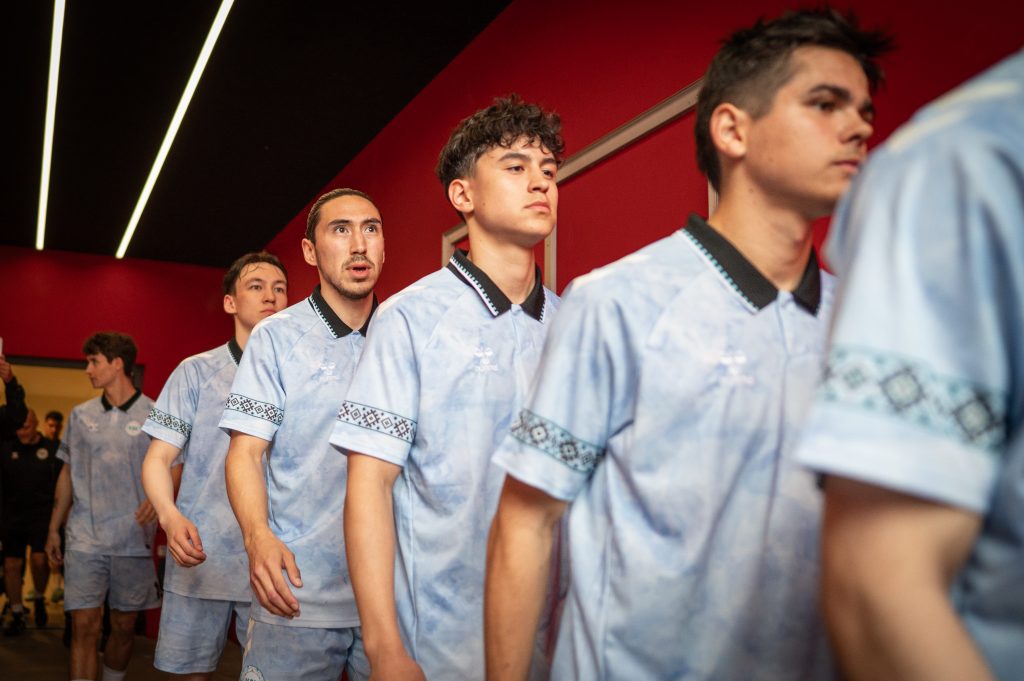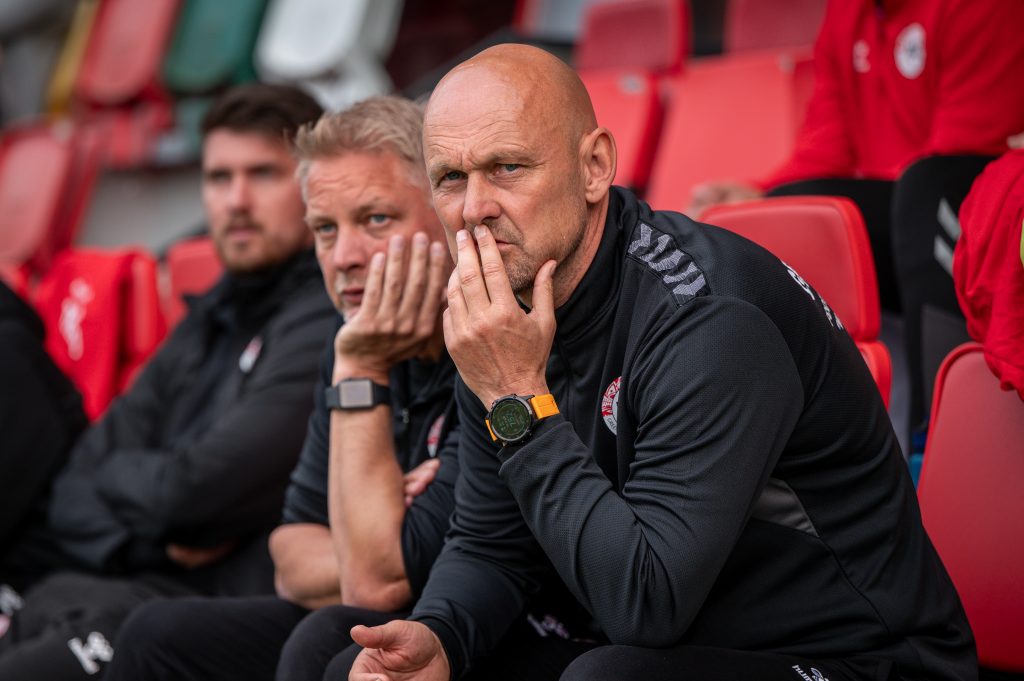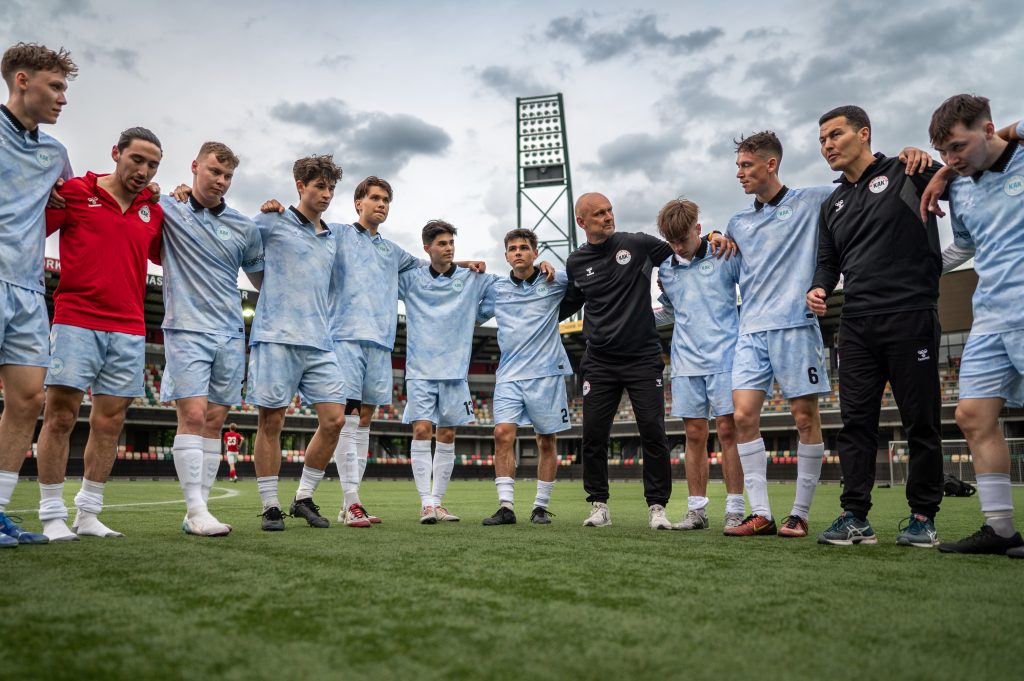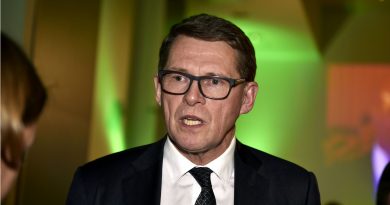Greenland coach speaks out on CONCACAF rejection & fight for Arctic team’s recognition

The unanimous CONCACAF rejection of Greenland’s bid to join the soccer confederation this month continues to reverberate across the Arctic island’s sports world.
To understand the impact of this decision beyond just soccer, Eye on the Arctic spoke to Greenland’s national team coach, Morten Rutkjær, about the challenges, frustrations, and what’s next for the team and their aspirations on the global stage.
Eye on the Arctic: Tell us about your reaction to the CONCACAF decision and what it means for the team.
Morten Rutkjær: This was our last chance to be a part of something. We had hoped for a constructive response—we expected they might say: ‘You need a small stadium’ or something like that, but instead, Concacaf just told us, ‘You can’t join. Good luck in the future.’ That was it. It’s very disappointing because we didn’t even get any advice on how we could improve.
You’ve previously said that Greenland’s geographic location and football development made CONCACAF the logical choice for membership. Can you explain why?
Yes, geographically, Greenland is in North America, and it made sense for us to be in CONCACAF. Our level is comparable to teams in it, and we would’ve been able to play matches that made sense for us. Plus, we were ready to travel to these regions for games—we’re not asking others to come to us [in the Arctic], so that wasn’t the issue.
So for right now, we are out of everywhere and Greenland can’t play any national matches against other countries because we are not member. That’s totally crazy.
Tell us about the emotional impact this has on your players and the community back home in Greenland?
Football is a huge part of life here. The weather is tough—dark months, harsh conditions—and football is something that keeps the players going. For many of them, they have big dreams about playing national matches, to represent Greenland. But right now Greenland can’t be part of UEFA, they can’t be a part of CONCACAF. That’s a big failure for football.

You’ve worked hard to prepare Greenland for this opportunity—building infrastructure and partnerships with teams like Inter Miami. What’s next for the team?
We want an answer. What should we do better? Or is it totally closed? And then we see what they tell us. After that, we need some help from FIFA. Maybe we can we do something to be a part of something. Because we think we have a case right now
What do you hope people take away from Greenland’s story and this rejection?
Football is supposed to be for everyone. It’s like when a group of kids are together and one is kept on the outside, it’s not just a game they’re being kept out of—it’s a chance to belong. Greenland’s case is just an example, but I believe every small nation deserves the opportunity to participate. Football should be for everyone.
Finally, what’s your message to the Greenlandic people, your players, and anyone following this story?
I believe in my players and this team is my passion. This is not only just about football, it’s about the experiences and how the Greenlandic people want the best for each other. We will keep fighting for Greenland.

The above conversation has be edited and abridged for length and clarity.
Comments, tips or story ideas? Contact Eilís at eilis.quinn(at)cbc.ca
Related stories from around the North:
Canada: Hockey players ‘bummed’ Team North may not compete at next Indigenous tournament, CBC News
Greenland: Greenland FA chief slams CONCACAF rejection as ‘setback for football democracy’, Eye on the Arctic
Finland: Ice fishing World Championships latest in Finnish series of odd sports events, Yle News
United States: Veteran musher Brent Sass wins Yukon Quest 300, CBC News



